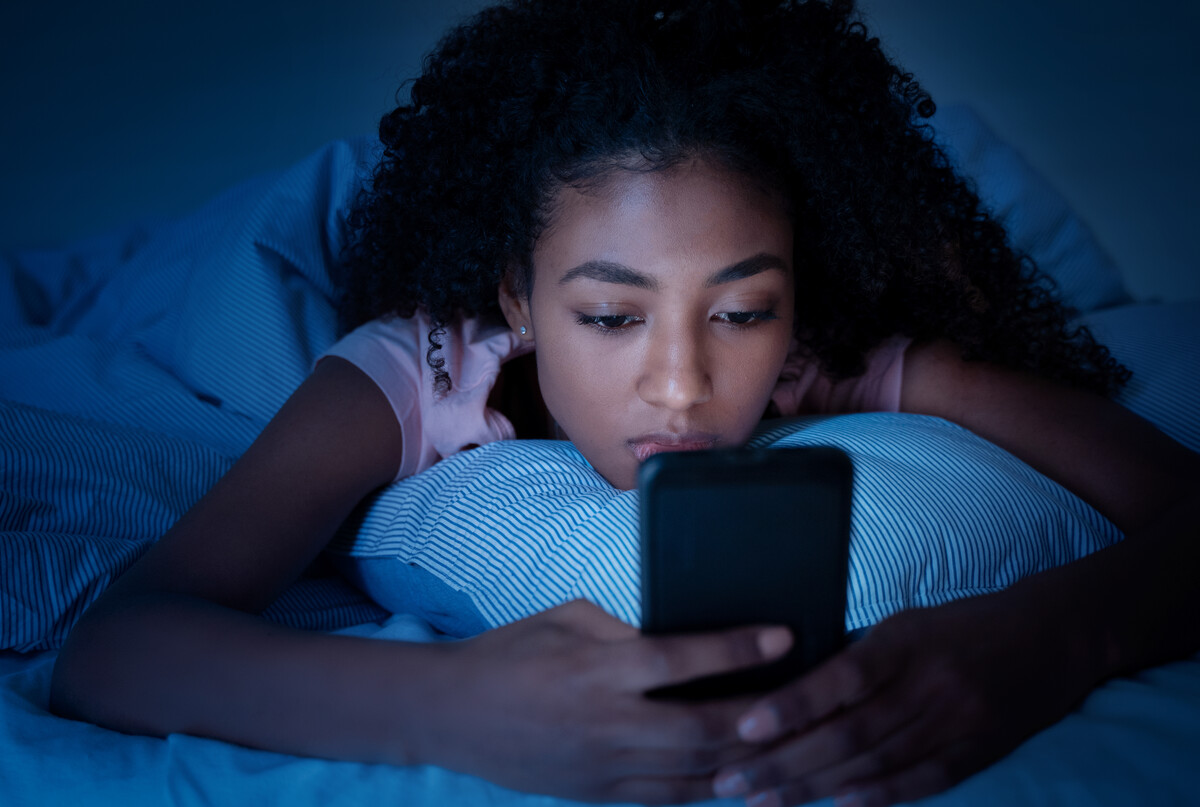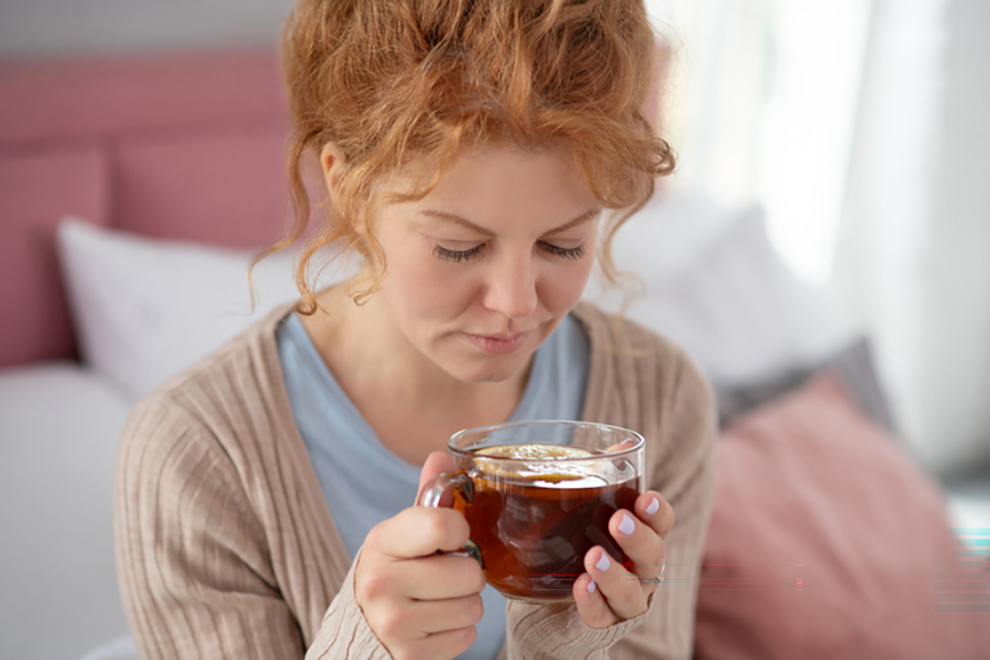
From monthly cycles to different stages in life, hormones can play a role in the amount and quality of sleep women get. Dr. Padmini Santosh, OB/GYN at Virginia Physicians for Women, looks at how to navigate and get the best sleep possible.
Sleep is a universal need for all life forms, including humans. In fact, we spend about one third of our lives asleep. The long-term absence of adequate sleep can result in serious physiological consequences. Lack of sleep can affect the ability to regulate stress hormones, lead to high blood pressure, and increase the risk of obesity, type two diabetes, and cardiovascular disease.
As women go through life, we learn that hormones are the culprit for most of the physical and emotional changes we experience, both during monthly cycles and through different life stages. It’s also normal for hormonal fluctuations to contribute to changes in our sleep patterns. Hormones are chemical messengers that travel through our bodies affecting growth and development, metabolism, sexual function, reproduction, mood, and appetite – and sleep is no exception.
Let’s look at how hormones can affect a woman’s quality and quantity of sleep at night as well as drowsiness or wakefulness during the day. I’ll also share some tips for managing the other factors affecting our sleep to get a better night’s rest even when hormones could be working against us.
Differences in Men’s and Women’s Sleep Experience as They Age
The amount of sleep humans require decreases with age. Newborns sleep about 16 to 18 hours per day, but by adolescence, sleep decreases to about 9 to 10 hours per night. Most adults only require 7-9 hours of sleep, but older adults require even less and tend to go to sleep earlier and wake up earlier.
As age progresses, there is also a decline in the efficiency and quality of sleep. But there are differences in the way men and women experience sleep. Research suggests that women have longer total sleep time, less total wake time, and overall better sleep efficiency than men. However, women have about a 40% higher risk for insomnia than men. These differences begin during puberty.
Sleep and the Menstrual Cycle
Have you ever noticed that it can be more difficult to fall asleep or stay asleep around the same time of your monthly cycle?
Estrogen and progesterone are the major female hormones, and their rise and fall throughout a woman’s menstrual cycle can contribute to challenges with sleep. Estrogen controls the phases of the menstrual cycle, while progesterone helps maintain pregnancy. Progesterone is known as the relaxing hormone, and it has a mildly sedative effect.
During the follicular phase of a woman’s cycle as she approaches ovulation, estrogen and progesterone levels rise, preparing the body to release an egg. Women may report feeling drowsier during this phase. After ovulation, estrogen and progesterone levels peak, and sleep may come more easily.
However, just before a period starts, during the luteal phase, progesterone levels drop dramatically. A lot of women find it difficult to get a good night’s sleep during this phase.
Remember that these monthly hormonal fluctuations are completely normal. They don’t mean that your hormones are “out of wack,” and they are only part of the story when it comes to women’s quality and quantity of sleep. What we consume, and the devices we use each day, and the stresses of life have more of an effect on our sleep than hormones. Keep reading for tips on things we can control when it comes to our sleep habits to help overcome these normal and minor hormonal influences.
Sleep and Pregnancy
If pregnancy occurs during a cycle, progesterone and estrogen levels don’t drop; instead, they skyrocket to prepare the body for carrying a baby: bolstering the immune system and relaxing the uterus so that it can grow. This is why women often feel very drowsy and nap frequently during their first trimester. This is normal! Pregnant women are supposed to sleep more, especially in this early stage of pregnancy.
These hormones even out by the third trimester; however, other symptoms can interfere with sleep as a woman nears the end of her pregnancy. Pressure on the bladder can cause frequent trips to the bathroom through the night, and circulation issues can also disrupt the ability to fall or stay asleep.
Sleep and Menopause
Another phase of life when dramatic hormone fluctuation can affect sleep is the period of time leading up to and during menopause. Estrogen and progesterone decrease during this phase, which can lead to irritability. Hormonal changes also lead to vasomotor symptoms like hot flashes and night sweats that can interfere with sleep. Women in this stage of life are often dealing with a lot of life stress that can lead to poor sleep quality. The “sandwich generation” is often taking care of their parents as well as children who have returned home or never left.
Sleep Aids and Medication
Some women who have trouble sleeping may use over-the-counter sleep aids like melatonin supplements, while others use prescription medicines to help them get more sleep. Be sure to speak with a doctor before taking any type of sleep aid, especially if you are pregnant. These medications might help for a short period of time, but medicine is not a cure for insomnia. Developing healthy habits during the day and at bedtime can help you get a good night’s sleep on a regular basis.
Tips for Improving Sleep
Now that you know when to expect hormone-induced periods of difficulty sleeping and staying awake, you can develop sleep habits that will help you navigate those periods. Remember that we can’t place all the blame on hormones for poor quality of sleep. Many other life and lifestyle factors contribute. Luckily, some are things we can control. Here are some tips for improving your sleep habits:
- Try to stick to a regular sleep schedule during the week and on weekends. Your body loves consistency, so going to bed around the same time each night and not sleeping in more than one extra hour on weekends will help improve sleep quality.
- Avoid eating close to bedtime. This can be a tough one because hunger hormones tend to rise at night, while those that make you feel satiated tend to decrease through the evening. But eating late at night can affect your quality of sleep and put you at higher risk for developing diabetes and obesity.
- Avoid cell phones and other screens at bedtime. Melatonin is a sleep-inducing hormone that helps regulate your sleep-wake cycle. During the day, sunlight prevents your body from producing melatonin, helping to keep you awake. Light from cell phones and laptops can also suppress melatonin, so using these screens at night can make it harder to fall asleep. If you do use your phone before bed, use the nighttime setting that changes the screen color and minimizes melatonin-suppressing light. And remember that falling asleep should be a peaceful, relaxing experience – not a time for engaging your mind, taking in new information and eliciting emotional responses that could keep you awake much later than you need to be.
- Limit caffeine intake and try to avoid it after 12 noon. Adenosine is another sleep-inducing hormone which naturally increases at night. Caffeine blocks adenosine receptors and can affect your sleep even when consumed several hours before bed. Opt for decaf!
- Don’t drink alcohol within 3 hours of bedtime. Alcohol may make you feel sleepy at first, but you will wake up and it’ll be difficult to go back to sleep.
- Create a sleep environment that is quiet, dim, and an appropriate temperature. Try using a white noise device or app, turning off lights and screens before you get into bed, and making sure your room is not excessively hot or cold.
- Use your bed primarily for sleep. Avoid working in bed.
- Exercise earlier in the day or at least a few hours before bedtime. Exercising can do wonders for getting deep sleep that gives your body a chance to rejuvenate. Endorphins are hormones that your body releases in response to pain or stress. Endorphins that are released during exercise can increase brain activity that cause people to feel more awake, so exercising at least a few hours before bedtime will give your mind time to wind down.
- Try relaxing or meditating before bed. Mindfulness relaxation practices, yoga, breathing techniques, and even taking a warm bath can calm you and help you manage the stress hormones cortisol and adrenaline that contribute to anxiety, irritability, and sleep problems.
- If you do wake up in the middle of the night, try to avoid doing anything that will stimulate your brain, like scrolling on your phone, reading a book, or watching the clock. Instead, try meditation or repeating a word over and over until you nod off. That’s something I grew up doing in my Indian culture: repeating the name “Rama,” the protagonist of the Indian epic Ramayana. Rama is the incarnation of the Lord on earth, so repeating these two syllables is a bit like mindless prayer. Counting sheep is a western version of this repetition technique meant to de-stimulate your brain. It works!
When to Seek Help
Getting the right amount of sleep can be critical for a woman’s immune system, physical and emotional health, and overall wellbeing. While hormones can contribute to sleep difficulties, managing stress and other lifestyle factors is the best way to get better sleep. (See Dr. Adrianne Colton’s blog post for tips on managing stress and grief during the pandemic.) Try practicing the different sleep habits above until you discover what works for you. If you’re still experiencing chronic insomnia or excessive daytime sleepiness, it may be time to see a sleep specialist. These physicians can help you get to the root of the problem and find a healthy way to improve your sleep.
About Padmini Santosh, M.D.
Dr. Santosh is an OB/GYN at Virginia Physicians for Women. She sees patients at VPFW’s St. Francis and Prince George offices.





